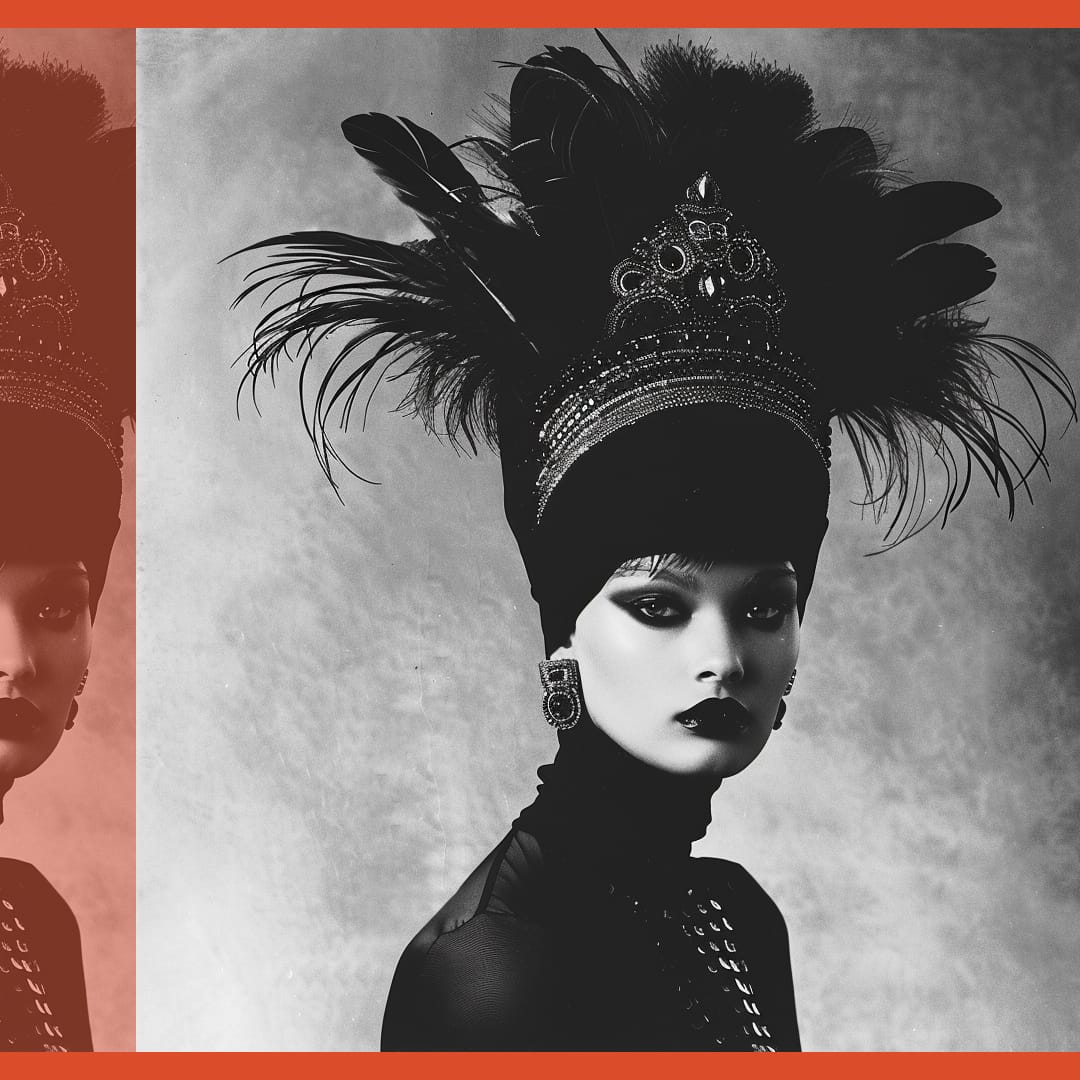
hypothesis of archetypes
The hypothesis of archetypes in the collective unconscious belongs to the class of those scientific ideas,
that seem strange at first, but quickly turn into well-known and familiar concepts….
archetypes - the model of Greek goddesses



The ideal structure to analyse:
The myths of ancient Greece often follow clear plot structures with conflicts, trials and resolutions, making it easy to trace archetypal roles such as ‘hero’, ‘sage’, ‘lover’, but with the example of the heroes of the myths of ancient Greece. This gives a more complete illustration, and complements substantially the classical system of archetypes and their interaction in the development of the plot.
The diversity and versatility of archtypical personas:
Greek mythology features a variety of gods, heroes and monsters, each of whom embodies certain human qualities and traits (such as wisdom, jealousy, bravery, cunning, etc.). This makes myths convenient for analysing the various archetypes found in psychology and cultural studies
The ideal structure to analyse
The myths of ancient Greece often follow clear plot structures with conflicts, trials and resolutions, making it easy to trace archetypal roles such as ‘hero’, ‘sage’, ‘lover’, but with the example of the heroes of the myths of ancient Greece. This gives a more complete illustration, and complements substantially the classical system of archetypes and their interaction in the development of the plot.



Historical significance and a rich interpretive tradition:
Greek myths are deeply rooted in Western culture and have been reinterpreted and adapted by philosophers, writers and artists over the centuries. This enables researchers to draw on a centuries-long tradition of interpretations and analyses that help to better understand the archetypes in myths.
The universality and relevance of myths
Many of the themes raised in Greek myths (love, war, greed, search for truth, etc.) remain relevant in modern society. They continue to attract attention because the archetypes depicted in myths are easily found in everyday life and popular culture. The use of archetypes in fashion is based on the knowledge of myths and psychological knowledge that has been refined over time

Different archetypes and their manifestations live in every woman!
Archetypes are mysterious and diverse! Different archetypes and their manifestations live in every woman! Archetypes are universal symbolic images that embody basic human aspects and emotions. Archetypes cannot be ‘caught’ they can only be felt, catch the essence, it is a construct in the collective unconscious. They live in fairy tales myths and legends, perhaps from childhood we ‘accept’ specific archetypes, perhaps we go in the shadow of these archetypes.
various brands is based on certain archetypes
It is no secret that the production of clothes and accessories of various brands is based on certain archetypes, one or more. It is especially interesting how designers combine archetypes and styles. And this is a great art. If you pay attention, you will see the archetypes manifested both in fashion models and in ready-to-wear collections.

Why do we need archetypes
Archetypes ‘live’ in everything absolutely, and clothing and footwear manufacturers clearly follow ‘their’ archetypes. What are archetypes – how to ‘connect’ to them – there are only certain signs, but no one can answer this question specifically! Why do we need archetypes? For clothing manufacturers it is very important to understand their target audience. For buyers it is important to implement as many archetypes as possible in their lives and to receive their energy and resources! There are no boundaries or specifics here.
feeling
Moreover, there are many systems of archetypes. And sometimes it is much easier to deal with it just by feeling this or that archetype.

What exactly is interesting about archetypes?
Let us consider a system based on Greek myths. What exactly is interesting about archetypes?
How to ‘connect’ to them as in themselves to grow versatility and the ability to achieve their goals with the help of archetypes! Clothing and accessories can help very well! In general Archetypes are divided into Maternal (Adult) and Child. What are the values of each of them!?
Maternal values are power, calmness, resourcefulness, strength, influence, systemic thinking, ability to defend oneself, ease of self-presentation and public speaking
Shadow values: manipulation, control under the guise of care, devaluation of sex and partner, suppression, passive aggression.
Children have such values as joy of life, desire to explore everything, to learn new things, to please people, to laugh, to receive gifts, sexuality, openness, playfulness and flirting.
Shadow values of children’s archetypes – desire to shift responsibility, dependence on other people’s opinions, excessive emotionality, desire to prove, rebel, draw attention to oneself (infantile behaviour of adults).
This is all more about psychology, and this site – a resource about effective tools to manage their arch-type through external attributes (clothing shoes shoes asesuaries).
How many adult and child Greek goddesses can live in each of us?

Greek goddess archetype sytem
The archetype system in fashion is a concept that combines recurring images and types that reflect specific styles, characters, and personalities. Archetypes help designers, stylists, and brands create more focused and meaningful looks based on universal and easily understood associations. These archetypes are rooted in cultural symbols and ideas, allowing for a clearer and more intentional expression through fashion that aligns with the expectations and values of the target audience.
Why there is no exact system of archetypes?
Archetypes in fashion, like everywhere else, are certain sets that are read unconsciously by us in a split second. The archetype systems are numerous, because they flexibly flow from one to another. It is also difficult to agree with one system. because many authors have dealt with this topic, and different opinions enrich knowledge. Different points of view allow you to feel more, to understand which archetype to choose for your own wardrobe, as well as for the production of a line of clothes or shoes and accessories
Why Greek goddesse?
The images of Greek goddesses are well-known and easily recognizable. For example, Athena is associated with wisdom and strength, Aphrodite with beauty and romance, and Artemis with independence and nature. These images can be easily interpreted through clothing and accessories, creating memorable and emotionally charged looks. In terms of Greek mythology, there are at least seven goddesses living in every woman, and each of them has both pros and cons What are they? Who are they!? Let’s get to know them better!

ARTEMIDA
She is a strong woman who can stand up for herself, compete and extract resources. She is a good friend and sister, courageous, self-confident, persistent purposeful and freedom-loving. Still, Artemida is more like an emotional rebel than a mistress of her life. She is energetic and impulsive.
Artemida used to count in life only on themselves, their strength and abilities, so it is difficult for her to find a common language with representatives of the opposite sex. She is not used to ask for anything or to depend on someone. Styles of this archetype are all militarised such as militari, safari, marine style.




the goddess of wisdom and knowledge

AFINA
Afina is a wise strategist and business partner, she has an outstanding intellect. Intelligence is her main weapon. All her actions are logical, well thought out and part of a strategy.
Athena was the patroness of the city of Athens, the ancient Greek capital and cultural centre. She was the goddess of wisdom and knowledge, as well as the patroness of crafts and arts. Her sphere of influence included aspects such as strategy, warfare, crafts, artisans, education and many others
According to the myth of her birth, Athena, one of the most revered goddesses of the ancient Greek pantheon, was the goddess of wisdom, military strategy, crafts, and justice. Her birth was in itself unusual and miraculous. The myth of Athena’s birth begins with Zeus, her father, eating Metida, the goddess of reason, when she was pregnant with Athena. This was done on the prophecy that Metida’s child would surpass Zeus himself. After this, Zeus began to experience severe headaches. Hephaestus, the god of blacksmithing, came to the rescue and cracked Zeus’ head with his hammer, from which Afina emerged, all grown up, in full battle armour and with a battle cry on her lips. This event symbolised her birth as a goddess associated not only with wisdom but also with martial prowess. Afina lacks the ability to trust others, femininity and the ability to follow a man.
Such women are feared by men and bypassed. This archetype is better to apply at work, and do not take it with him in his personal life.
Afina is active, bossy, strong and mature personality. She is somewhat conservative, but responsible, disciplined and not afraid to take on the role of a leader. She is a workaholic, a career woman and a business lady.
the goddess of wisdom and knowledge
Positive values of the Archetype:
Education, intelligence, professionalism and competence. Systematicity, ability to build complex systems. Stress resistance, wisdom.
Leadership and public speaking skills
Negatives:
Lack of femininity and sexuality, masculine Character Traits, importance of the future and one’s goals.
Lack of ability to enjoy life (these people are very fond of planning and they are often perfectionists, which does not bring them happiness in life itself)
Athena’s styles are avant-garde, all varieties of business style Colours of Athena Grey, brown, black, blue
First impression of them: Leader, professional, ruler, teacher
Symbolism: owl (symbol of learning), watches, glasses, expensive but restrained fabrics, dress code embellishments (pearls), jackets with lapels, belts, large bags – briefcases, all business paraphernalia.
The archetype of Athena reminds us of the importance of strength, wisdom and elegance, of women’s rights to education, success, their own business and achievements!

Afrodita
Aphrodite is the goddess of love and beauty. It is a creative nature, free, creative, romantic, sensual and sexy. Aphrodite is an ancient Greek goddess, of love, fertility and fun. According to mythology, she was born from sea foam that came ashore after a piece of Uranus’ organ, cut off by his son Cronus, fell into the sea. This myth symbolises beauty and birth out of chaos and destruction. The birth of the beautiful out of nature.
Aphrodite does not reflect, but feels and senses, lives in the here-and-now moment. But she also has signs of infantilisation. Does not think about the future or the consequences of her behaviour. Aphrodite should learn to rest a woman! Her whole existence is a flirtation and a game. She does not love a particular man she loves love itself, sex itself. Her archetype reminds us of the importance of beauty and love in life, that our ability to appreciate beauty in the world and in other people makes our lives more fulfilling and meaningful.




Aphrodite is the goddess of love and beauty
Aphrodite also symbolises the power of female energy and empathy, which can transform the outcome of events and bring harmony to the world. To the disadvantages of this archetype can be attributed: impulsiveness, irrationality, excessive amorousness and sexuality, excessive spontaneity and emotionality.
attributes of Aphrodite
What are the attributes of Aphrodite? Any sea symbols, shells, waves, starfish, wet hairstyles, aquamarine make-up. Also her symbols are doves and apples. In the myths she lived only in the belt, that is, without clothes at all! The archetype of Aphrodite in clothing is sensual elegant outfits, delicate textures, silk. Aphrodite flirting and seducing! Blue and aquamarine stones, a lot of jewellery and accessories, open seductive clothes.

DIMETRA
Dimetra is the goddess of fertility and motherhood. In a woman this archetype is manifested in the desire to become a mother, to take care of other people, to do housekeeping, to cook and feed, both real and spiritual food.




Dimetra is the goddess of fertility and motherhood
Dimetra is responsible, caring, gentle and patient. To the negative features of this archetype can be attributed the lack of sexuality, playfulness, hyper-parenting not only over her husband and children, but also over all those around her.
One of the most recognisable elements of Dimetra’s clothing is the tunic. It is a simple but graceful dress with long pleats that emphasise the shape of the body.
Modern designers often use this image, creating lightweight summer dresses made of natural fabrics such as linen or cotton, with added accents in the form of necklines or decorative elements.
Long, moving fabrics, soft pleats, necklines and asymmetrical lines all characterise the style of the antique era and the archetype of Dimetra.
Such features can be found in modern dresses, tunics and in everyday outfits
natural beauty
The main colour of the Dimetra archetype is beige, natural blue, brown, possibly shades of khaki. All colours of this archetype are associated with natural beauty and harmony. It reminds of warm shades of sand, caressing the sun rays, or a soft palette of golden shades of autumn leaves.
In general, all colours of the Mother archetype are close to nature. After all, motherhood is nature, it is natural resources and beyond the understanding of mankind.
Archetype of Dimetra is about generosity, about care and love. The energy of this archetype is really very powerful and exciting! Interesting fact ? Who does not like beige tunic dresses? Perhaps you lack this archetype! Perhaps someone will answer – so I don’t need, I don’t want children, because everyone has their own choice. Yes, but Birth is not only about children! It’s about ideas and projects, businesses and systems.Of course, the archetype of Athena, but still, without Dimetra – without the benefit of your system or business, without Mission is much more difficult.



KORA-PERSEFONA
The most complex and mysterious archetype from the point of view of Greek mythology is Kora-Persephone. Why is that? This archetype is a symbol of transformation, rebirth and maturation, refusal of infantilisation on the one hand and sadness for the past carelessness on the other hand. It is an ambivalent archetype. It is both adult and childish at the same time, it is about the process of growing up.
TRANSFORMATIVE ARCHETYPE
It might be interesting to tell this ancient Greek myth about Kora- Persephone. The ancient Greek myth of the abduction of Kora, the daughter of Dimetra and Zeus, and her transformation into Persephone begins with a young girl, Kora (meaning ‘girl’ or ‘maiden’), living carefree on earth with her mother Dimetra, the goddess of fertility and agriculture.
One day, when Kora was picking flowers in a meadow with her friends, a beautiful daffodil caught her eye. As soon as she plucked the flower, the earth suddenly opened up and Hades, the god of the underworld, rode out of it on a golden chariot. Hades had long wished to take Kora as his wife and, seizing the moment, kidnapped her and took her to his underworld kingdom.
When Dimetra (her mother) learnt of her daughter’s disappearance, she was deeply saddened. In her grief, she left Olympus and wandered the earth, desperately searching for Cora. At this time a great drought began to break out on the earth: plants did not grow, fields did not produce crops, and people began to starve.
Finally, after many agonising days and nights, Demeter learned the truth from Helios, the sun god, who had seen Hades kidnap Cora. Maddened with grief and anger, Demeter appealed to Zeus to return her daughter. Zeus, seeing that the earth and its inhabitants were suffering, agreed to intervene.
However, there was one condition: if Kora did not eat anything in the underworld, she could return to earth. But Hades was more cunning: he gave Kora some pomegranate grains, which she ate, thus binding her to the underworld forever.
After much negotiation, an agreement was reached: Kora would spend part of the year with Hades in the underworld, becoming his wife and goddess Persephone, and the rest of the year with Dimetra on earth. This cycle explained the change of seasons: when Persephone is in the underworld, Dimetra mourns and winter comes. When Persephone returns to earth, Dimetra rejoices and nature comes alive, bringing spring and summer.
Thus, Kora became Persephone, queen of the underworld and goddess of rebirth and fertility. This myth symbolises the eternal cycle of life, death and rebirth, and the inevitable connection between life and death.

archetype - symbol of transformation
This is a woman-child, not ready to take responsibility for her actions and decisions. Therefore, the negative aspect of this archetype of Persephone is difficulties both in choosing a profession and a husband. She is driven, compliant, passive and indecisive. It is the being stuck ‘in between’ where infantilisation displaces a woman’s adult needs! An express solution to the clothing and image of this archetype is to stop wearing Kora’s clothes (A-shaped short dresses and skirts, bright colours, and replace it with Persephone’s clothes (long dresses, black or brown, poppy or pomegranate paraphernalia, combinations with red and purple). But at the same time, Persephone subtly feels the world around her and is able to adjust to other people and circumstances. For normal interaction with others, Persephone needs to ‘grow up’, to become a psychologically mature woman.
The story and symbolism of Kora – Persephone represents important aspects of the human experience and helps us to better understand and accept the changes we face in our lives.





GERA
Gera, one of the most powerful goddesses of the ancient Greek pantheon, was the consort of Zeus and queen of the gods. She patronised marriage and family life, but was also known for her jealousy and vindictiveness, especially towards her husband’s many mistresses and illegitimate children.Hera is a goddess-wife whose meaning of life lies in her love for her husband. Gera’s main aspiration is to become an official wife, she preserves the marriage at all costs, does everything for her husband’s well-being, even to the detriment of herself and her children.
Gera knows how to be at events, to show herself at her best, to create the feeling of an ideal family and relationship.

Gera is the goddess-wife
Gera, one of the most powerful goddesses of the ancient Greek pantheon, was the consort of Zeus and queen of the gods. She patronised marriage and family life, but was also known for her jealousy and vindictiveness, especially towards her husband’s many mistresses and illegitimate children. Hera was also involved in the myth of the Trojan War. She, Athena and Aphrodite argued over who was the most beautiful, leading to the famous Judgement of Paris. Paris, son of the Trojan king, had to choose who would receive the golden apple of discord. Aphrodite promised him the love of the most beautiful woman, Helen, and Paris chose her, which provoked the wrath of Hera and Athena. As a result, Hera was one of those who actively supported the Greeks in the Trojan War, seeking the destruction of Troy.
Hera was revered as a powerful and austere goddess, and her cult was widespread throughout Greece. Her symbols were the peacock, the pomegranate and the crown. Her temples and shrines can be found throughout the ancient Greek world, including the famous Temple of Hera at Olympia.

Gera is the archetype of the fashion industry
Pros of the archetype: Hera is loyal, patient, respectful, faithful, she knows dress code etiquette and rhetoric, she knows how to keep her posture and control her emotions. She is flexible and can act from a position of strength or from a position of femininity, which is also strength!
Gera is the wife of a ruler, a leader, it is very valuable for her to be in an official relationship.
Negative sides of this archetype: jealousy, aggressiveness, vindictiveness, manipulativeness, fixation on marriage, weakly expressed love for children. In clothing it is expensive brands, fabrics, expensive fine watches and jewellery, diamonds. Hera loves luxury, but restrained, corresponding to her position in society. Hera is a symbol of greatness and fortitude. This aspect of the archetype is manifested in fashion through powerful and impressive images.
Elegant dresses with bright and expressive silhouettes, cuffs and accessories that add majesty and grace to the image, prints and embroidery, as well as the use of quality and expensive fabrics help to convey this aspect of the archetype.
Elegant dresses with puffy skirts or luxurious details such as lace and embroidery can also help to create images that epitomise the majesty and resilience of Gera.
Jewellery and expensive bag accessories – Hera is the archetype of the fashion industry.




HEKATA
Hecate, the ancient Greek goddess of magic, sorcery, night and moonlight, was one of the most mysterious and powerful goddesses of the ancient Greek pantheon. She was also considered the patroness of crossroads, entrances and travellers. Hecate was the daughter of the titan Persus and the titanid Asteria, and was credited with possession of secret knowledge and skills
magic
One of the most famous stories about Hecate is related to the myth of Persephone’s abduction. When Hades, the god of the underworld, kidnapped Persephone, the daughter of Demeter, to make her his wife, Demeter desperately searched the earth for her daughter. Hecate, hearing Persephone’s cries, came out of her abode with torch in hand to help Demeter in her search.
Hecate and Demeter searched the earth and sky together until they met Helios, the sun god, who told them what had happened. Hecate continued to support Persephone thereafter, becoming her guide and protector as she travelled between worlds throughout the year: from the underworld to her mother and back again.
Hecate is also known for her ties to magic and sorcery. She possessed mysterious powers that could protect people from evil and guide them to the path of righteousness.
Many sorceresses and magicians invoked Hecate in their spells, believing that she could give them strength and wisdom to achieve their goals.
three-faced statue
The myth of Hecate and the three-faced statue is interesting. Hecate was often depicted with three bodies or three faces, symbolising her power over the earth, sky and underworld. This form allowed her to see everything that was happening in the three worlds and helped her to protect and guide those who sought her help. Crossroads were considered sacred places for Hecate, and her statues were often erected in these places, where travellers left offerings to enlist her protection on their journey.
Hecate was also worshipped as the goddess of moonlight and night phenomena. Her worshippers performed rituals by moonlight, believing that her power was especially great at this time. She was believed to be able to summon and control ghosts and spirits, and was often invoked to banish evil and protect against unclean forces.
Hecate was revered by both Greek and Roman magicians and sorcerers, and her cult spread far beyond Greece. Her influence was felt in various aspects of life and death, and she remained an important figure in magical and religious practices throughout the ages.
Hecate symbolised strength, wisdom and protection, and she was revered as a goddess who could control the world of shadows and light. Her cult left a deep trace in the mythology and religious traditions of the ancient world.





HESTIA
Hestia, one of the twelve Olympian gods, was the goddess of the home, domesticity and family well-being. Her name means ‘hearth’ and she symbolised the centre of family and social life.
peaceful and modest goddesses
Hestia was one of the most peaceful and modest goddesses. Unlike many other gods and goddesses, she was not involved in quarrels and intrigues. Her main occupation was to maintain the home and protect family values. Hestia took a vow of perpetual virginity and refused marriage proposals from Poseidon and Apollo, wanting to maintain her independence and focus on her duties. One of the interesting stories associated with Hestia tells how she ceded her place on Olympus to Dionysus. When Dionysus became the god of wine and merriment, he took his place among the twelve Olympians. Hestia, wishing to preserve peace and harmony, voluntarily gave up her place, but continued to be honoured and respected by all the gods.
In every Greek house and city Hestia was given special attention. Every home had a hearth dedicated to her, and every city had a public sanctuary with an eternal fire kept in her honour. This fire symbolised the continuity of life and the stability of society. When a new city was founded, the first fire was brought from the common sanctuary of Hestia to ensure prosperity and well-being.
religious rituals

Hestia also played an important role in religious rituals. All sacrifices began and ended with a libation in her honour to ensure her blessing and protection. Hestia symbolised peace, stability and harmony, and she was revered both within the family and in society at large. Her cult was widespread throughout Greece, and her influence was felt in every home and every city where the sacred fire of her hearth burned.
It is desirable for Hestia to develop social skills and become more open and sociable.
If one or two of the above archetypes in you are brighter than others, it may indicate some imbalance in one or more areas of your life

ARCHETYPE MIX
In most cases, designers are actively combining different archetypes and styles. Very often it is even difficult to understand what this ‘mix’ is. And this is what makes fashion fascinating and limitless in its manifestation


types of archetypes in women's fashion
what other archetypal systems exist?


